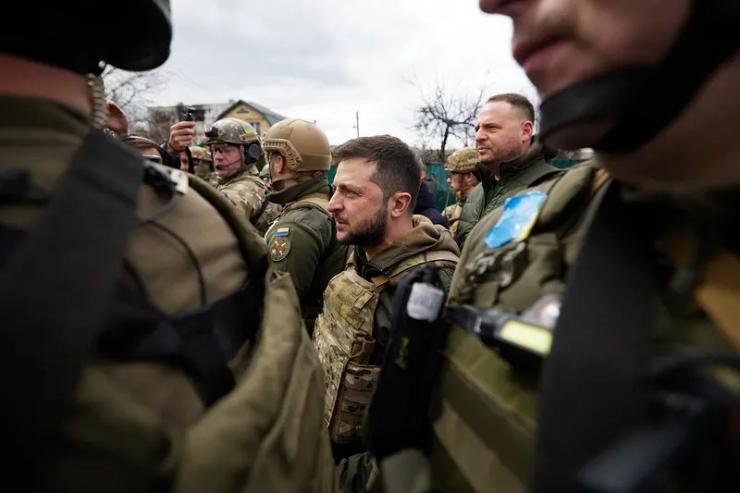The News
Ukrainian President Volodymyr Zelenskyy is on a new push for military aid to help stem Russia’s battlefield progress, turning to European allies as well as ongoing discussions over the potential use of funds from frozen Russian assets.
Hopes that G7 leaders will reach a deal on the approximately $3 billion of Russian assets immobilized in the European banking system to fuel Kyiv’s war effort have buoyed since finance ministers cited “progress” in talks ahead of the mid-June G7 leaders’ summit.
Sweden, Belgium, the Netherlands, and Spain have made new funding commitments as Kyiv even looks to sell its iconic Hotel Ukraine to drum up more cash, according to Le Monde.
SIGNALS
Kyiv is desperate for funding
Floated G7 plans may not be enough, but they are a “big step” that needs to be “nailed down fast,” wrote the Atlantic Council’s Dan Fried. Russia’s targeting of Ukraine’s energy sector means Kyiv will face a brutal winter unless its essential services are kept running, Olga Khakova, an energy security expert at the Atlantic Council, added. The West must step up and create a long-term funding strategy that involves providing Ukraine with $100 billion a year in military, political, and humanitarian assistance, Anders Aslund argued in the Kyiv Post.
Confiscating Russian assets could risk a ‘chilling’ effect
Permanently seizing Russian assets could spook countries like China, India, and Saudi Arabia by breaking the norm of sovereign immunity, and might even undermine G7 and Ukrainian leverage if and when they start to negotiate with Russia, Creon Butler of Chatham House argued. But doing so wouldn’t change the incentives of governments that are not already planning a major war. By not seizing the funds, Western leaders are signaling that “governments waging brutal wars of aggression can violate international law and simultaneously benefit from it to escape the consequences of their actions,” Joseph E Stiglitz and Andrew Kosenko argued in The Guardian.
Ukrainian civil society is filling the gap
“Most of Ukraine’s relief effort to date has been borne by Ukrainians themselves,” reported openDemocracy, but community-led organizations receive only “a pittance” of the billions in humanitarian aid flowing into the country, the nonprofit magazine Proximate argued. Feminist initiatives leading frontline response efforts are underappreciated as well as under-resourced: “Support of Ukrainian civil society is not only money, it is visibility and recognition of the work being done,” Feminist Workshop told Alliance magazine.



